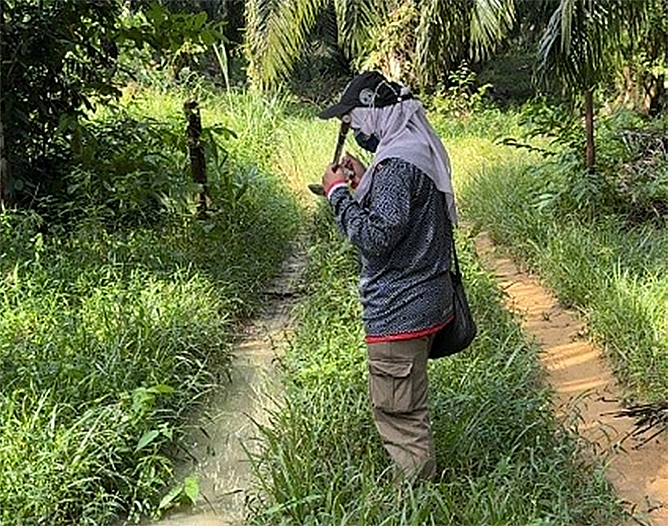
GHSCO Newsletter
June 2025
Volume2 Number2
Partner Stories1
Malaysian Entomologist Leverages Korean AI Technology to Combat Vector-Borne Diseases
Noorazyan Binti Haris, an entomologist with 10 years of experience, participated in the GHSCO Core Personnel Training Program to enhance her technical skills and learn global best practices in public health. Her primary interest lies in innovative technologies such as Korea's AI-DMS mosquito monitoring system, which she believes can be effectively adapted for use in Malaysia.
Haris's initial Action Plan, "Strengthening Entomological Surveillance: A Strategic Action Plan for Combating Vector-Borne Diseases (Zoonotic Malaria)," aimed to improve the monitoring and control of mosquito-borne diseases, particularly zoonotic malaria caused by Plasmodium knowlesi. She has since revised her plan by narrowing the geographic scope from a broader regional focus to specifically concentrate on Segamat, Johor, where she is currently based. This adjustment was made to ensure the plan's feasibility and manageability given constraints in time, budget, and manpower. By focusing on a single district, she aims to implement the plan more effectively and create a localized model that can be scaled up later.
So far, Haris has completed foundational steps, including continuous local vector assessments, mapping vector distributions in Segamat, and beginning the digitalization of data. While the overall structure of her plan remains, she has adjusted timelines and expectations to ensure practicality and impact, learning that "starting small is often key to building a stronger, more sustainable model".
Field Story from Malaysia

After the in-person training, entomological surveillance activities were implemented in Segamat, Johor, with a focus on identifying mosquito breeding sites in forested and planation areas. Between January and April 2025, she applied enhanced vector surveillance techniques through systematic larval sampling and habitat mapping, directly contributing to the goal of strengthening data-driven entomological surveillance.
The training significantly impacted Haris's approach to work and decision-making, particularly her understanding of the interconnectedness of data and field practices. She found Korea's AI-based Digital Mosquito Surveillance (AI-DMS) especially insightful, providing a fresh perspective on how innovation can transform long-term vector monitoring and support data-driven decisions. Haris is eager to apply these insights to her work and contribute to innovative solutions in entomological research and surveillance.
Haris continues to stay in contact with several program participants, finding it valuable for exchanging ideas and learning different approaches to vector surveillance and disease control. These connections have led to sharing insights, discussing solutions to common challenges, and opening opportunities for future research collaborations. Reflecting on her experience, she highly recommends the program to colleagues, particularly early-career officers in public health or vector surveillance, emphasizing its solid foundation in theoretical knowledge and practical application, and the invaluable opportunity to engage with international experts and peers.